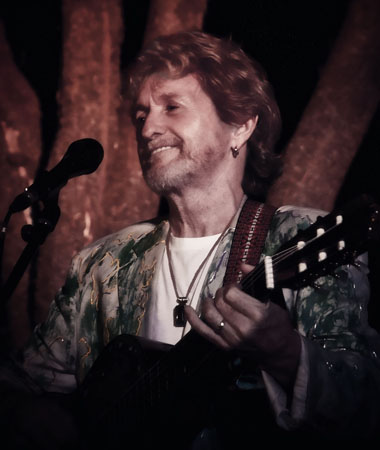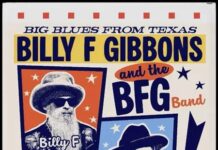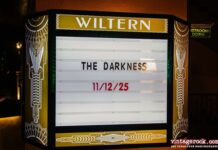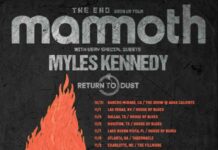Review by Shawn Perry
Photos by Dave Johnson
Special are the moments when you get to see a legendary musician, known for singing progressive rock epics in front of thousands, up close and personal. For Jon Anderson, who was unceremoniously showed the door after faithfully fronting Yes for four decades, singing the songs he has written and became famous for in a small setting seems to suit his Zen-like nature. At the Coach House, it also presented an opportunity for the singer to tell the audience the stories behind some of those great Yes tunes.
Going in, I was curious if Anderson could still deliver. I mean, if Yes doesn’t think he has the stamina to keep up with the rest of the others…well, what was I to think? But then I remembered how active he’s been since recuperating from acute respiratory failure. In 2010, he played a few shows with Rick Wakeman. The next year, he and Wakeman recorded The Living Tree album and toured behind it. At the same time, he’s been steadily writing, collaborating with others, and churning out albums like Survival & Other Stories, as well as songs exclusively for download like the 20-minute “Open.” If you go to his web site, there are a lot of other songs he’s written available to download.
So here he was, at precisely 9:15, resplendent in a white sports coat with turquoise accents and matching tennies (at least from where I was sitting), alone on the Coach House stage with a couple of acoustic guitars, a keyboard and a microphone. Without so much as an introduction, he picked up one of the guitars, strummed a few chords and began to sing in that high-pitched tone that no one, not even Anderson’s successors in Yes, can replicate. “Yesterday a morning came, a smile upon your face…If the summer change to winter, yours is no disgrace…” The voice is still there!
“Two years ago, I became an American citizen,” Anderson informed the audience, who seemed to hang on to his every syllable. The Coach House wasn’t packed to the rafters, but there was still a respectable number, obviously longtime Yes fans comprising the majority. For those dissatisfied with the changes in Yes in the last four years, this was the real deal. An American citizen now, what else could Anderson play but Paul Simon’s “America,” which, of course, Yes covered and released as a single in 1971 (it would later show up on the Yesterdays compilation).
Over the course of the night, in between songs, Anderson talked about encounters he had with Bob Marley, Vangelis (whom he recorded with), the Beatles, Joe Cocker and Robert Plant. He talked about Yes openly, never despairingly, but always in an affirmative light. When I had interviewed him earlier in the year, he was the same way — never a bad word about anyone or anything, a constant beacon of positivity.
Even with a wealth of material at his disposal, Anderson made sure to play songs people wanted to hear, meaning mostly Yes stuff. Without no more accompaniment than a bass drum trigger, he miraculously pulled off intricate pieces like “Starship Trooper,” “Close To The Edge,” “The Revealing Science Of God,” “Owner Of A Lonely Heart,” and “And You And I.”
It was really quite remarkable to see Anderson singing and playing guitar, ukulele, ektara (I think) and piano on all these songs without the power of Yes behind him. He no longer has the luxury of taking a break during a long guitar or keyboard solo. So where is this lack of stamina he supposedly has, huh?
There were a couple of dips in the road, and at one point, Anderson stopped singing, complaining of a fly for about 30 seconds. He carried on as if nothing happened and the crowd roared their support. Meanwhile, solo tracks like “Marry Me” and “Tony And Me” pack loads of sentimental value, and when you consider Anderson’s story, they certainly fit well within the set.
You’d think a 90-minute set would be about the limit, but Anderson just kept going, even after “I’ve Seen All Good People” and “Roundabout,” often the songs Yes finish a concert with. The singer paused as if he were about to leave, but instead of ascending the steps back to his dressing room, he held back, strapped on another guitar and played stunning versions of “Wonderous Stories” and “Soon,” an excerpt from “The Gates Of Delirium.”
As he bowed and thanked the crowd, I couldn’t help but think the inevitability of him rejoining Yes. If they could have seen him tonight, there’s little doubt they’d be begging him to come back. The real question is, though, does Jon Anderson really need to go back to the grind of Yes? Floating on air, able to go at an easy pace, writing new material while acknowledging an unparalleled body of work — whatever Jon Anderson wants to do always seems to have a happy ending.





















